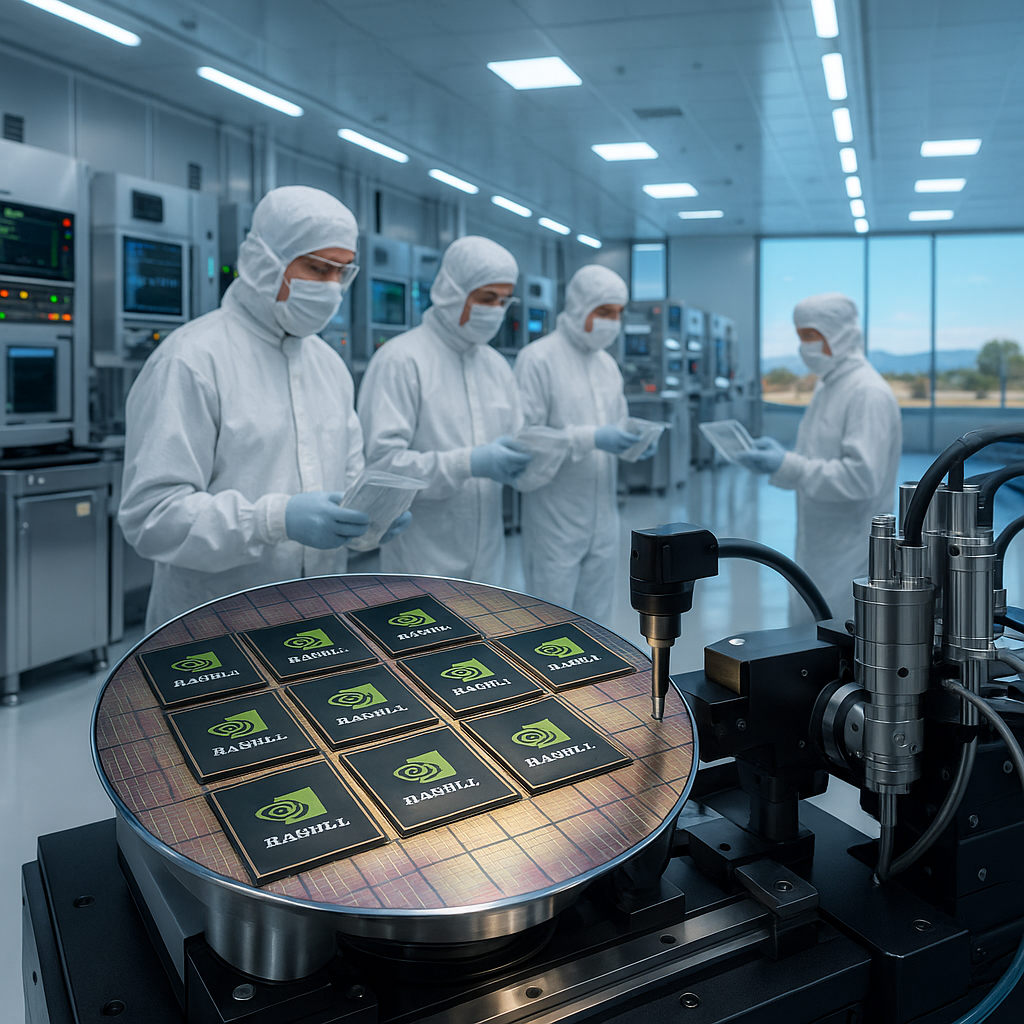Key Takeaways
- On 30 October 2025, today’s tech news review highlights Nvidia launching full production of its Blackwell AI chips in Arizona. This marks a major advance for US-based advanced chip manufacturing.
- Significant industry moves include high-profile partnerships, record user milestones, and new cybersecurity concerns.
- Top story: Nvidia begins mass production of Blackwell AI chips at its Arizona facility. This accelerates domestic AI hardware development.
- AMD and OpenAI form a strategic alliance to build large-scale AI infrastructure in North America.
- Google’s Gemini reaches 650 million monthly users, reflecting rapid adoption in the generative AI sector.
- Critical vulnerabilities are identified in TP-Link routers, prompting concerns for home network security.
Introduction
On 30 October 2025, Nvidia takes center stage in today’s tech news review by beginning full-scale production of Blackwell AI chips in Arizona. This milestone highlights a boost for US-based AI hardware. The day’s coverage also examines major developments in AI infrastructure and increased attention to cybersecurity issues in the digital landscape.
Top Story: Nvidia Ramps Up Blackwell AI Chip Production in Arizona
Nvidia announced that it has begun mass production of its Blackwell AI chips at its Arizona manufacturing facility. The company stated that initial batches are currently being assembled and tested. Full-scale production is projected to reach capacity by mid-November.
This Arizona facility represents a shift in Nvidia’s manufacturing approach, as it brings advanced AI chip production onto US soil amid concerns about global supply chain reliability. CEO Jensen Huang described this development as a milestone for American semiconductor independence during a recent press briefing with analysts.
According to Nvidia, the first Blackwell chips will be distributed to select enterprise customers and cloud service providers starting 5 December 2025. Broader availability is planned for the first quarter of 2026. The company projects that the new chips will provide up to 30 times the performance improvements for generative AI applications compared to previous generations.
Un passo avanti. Sempre.
Unisciti al nostro canale Telegram per ricevere
aggiornamenti mirati, notizie selezionate e contenuti che fanno davvero la differenza.
Zero distrazioni, solo ciò che conta.
 Entra nel Canale
Entra nel Canale
Also Today: AI Partnerships
AMD and OpenAI Form Strategic Alliance
AMD announced a multi-year partnership with OpenAI to develop specialized AI acceleration hardware. The partnership focuses on creating custom processors tailored for next-generation large language model training and inference.
AMD will provide OpenAI with priority access to its upcoming MI400 series accelerators prior to general market release. OpenAI will contribute expertise to guide the design of these future chips.
Industry analysts note that this partnership signals AMD’s intention to challenge Nvidia’s leadership in the AI hardware market. Sarah Jensen of Tech Futures Analysis stated that this move may provide AMD with valuable insight into the needs of AI developers.
Google Gemini Reaches 650 Million Monthly Users
Google reported that its Gemini AI assistant has reached 650 million monthly active users. This is a significant increase less than a year after launch, as announced during the company’s quarterly earnings call.
This growth rate positions Gemini as one of the fastest-growing consumer AI products, outpacing the early adoption of ChatGPT. Google attributes the surge in users to Gemini’s integration across Android devices and Workspace applications.
According to DeepMind CEO Demis Hassabis, much of Gemini’s adoption has occurred in emerging markets where users are encountering advanced AI interfaces for the first time. Hassabis reported particularly strong engagement in India, Brazil, and Southeast Asia.
Also Today: Cybersecurity
Critical Vulnerabilities Discovered in TP-Link Routers
Researchers at CyberSafe disclosed several severe vulnerabilities affecting more than 40 million TP-Link router models. These flaws could allow attackers to remotely access home or small business networks without needing physical proximity.
TP-Link has issued firmware updates for most affected models. However, experts caution that several older models will not be patched due to end-of-life status, which impacts an estimated 12 million devices worldwide.
Users are encouraged to visit the TP-Link support website to determine if their device is affected and to install available updates promptly. For models without a patch, security experts advise replacing them with supported devices as the safest solution. To further enhance your online protection, explore practical steps in the Cyber Hygiene Checklist.
What to Watch: Key Dates and Events
- Apple’s “One More Thing” event on 5 November 2025, where new Mac models with M3 Pro and M3 Max chips are expected to be announced
- Microsoft Developer Day in Seattle on 7 and 8 November 2025, with sessions on AI integration across Microsoft platforms
- Qualcomm’s Snapdragon Summit in Hawaii from 14 to 16 November 2025, expected to feature next-generation mobile processors
- Meta Connect conference on 18 November 2025, with anticipated announcements on new AR/VR hardware and AI features for Meta platforms
- Q4 earnings reports from major tech companies: Amazon (6 November 2025), Cisco (13 November 2025), and TSMC (14 November 2025)**
Conclusion
Nvidia’s start of Blackwell AI chip production in Arizona marks a pivotal step for US semiconductor resilience and anchors this week’s tech news review. AMD’s alliance with OpenAI and newly identified TP-Link security vulnerabilities further highlight the rapid pace of innovation and the importance of mobile security. Key product launches and major earnings reports from 5 to 18 November 2025 will shape industry direction in the weeks ahead.





Leave a Reply